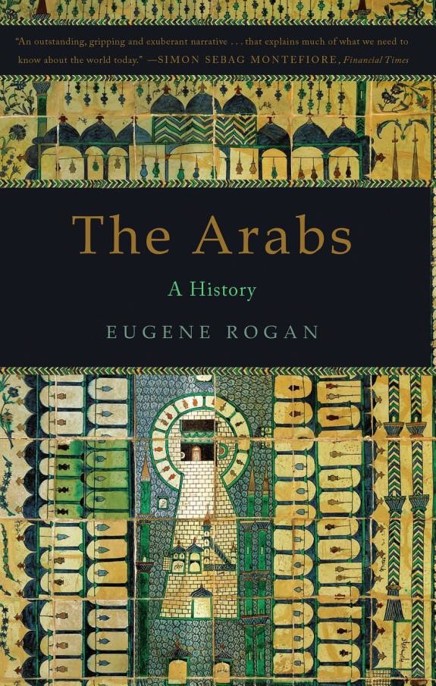
The Arabs
A History
کتاب های مرتبط
- اطلاعات
- نقد و بررسی
- دیدگاه کاربران
نقد و بررسی

October 1, 2009
A straightforward, careful primer on Arab political history from the rise of the Ottoman Empire to the forging of modern fundamentalist Islamic entities.
Rogan (Modern History of the Middle East/Oxford Univ.; Frontiers of the State in the Late Ottoman Empire, 2000) traces the significant modern themes of nationalism, imperialism, revolution, industrialization, migration and women's rights over the past five centuries within the Islamic states, stretching from North Africa to the Sinai, the Middle East to South Asia. With the conquest of the Cairo-based Mamluk Empire by the Ottomans in 1517, the vast Turkish-speaking Islamic empire would now rule from foreign capitals over the globe,"a political reality," Rogan writes,"that would prove one of the defining features of modern Arab history." Managing the multi-ethnicity of the empire was a challenge, and by the mid-18th century local leaders such as Zahir in Palestine and Ali Bey in Egypt challenged Ottoman autonomy, while the rise of the Wahhabi sect called for a return to the strictures of religious orthodoxy. Further currents of reform and nationalism, as in the Balkans, weakened the central state, while the waves of Franco-Anglo colonialism undermined Ottoman authority, from North Africa to Palestine. By the end of World War I the European powers negotiated their settlements in terms of"divide and rule." Rogan, who regards Arab history from the viewpoint of Arabs, concentrates on the postwar collapse of the Ottoman Empire, as British and French domination ebbed, Israel was established, the greed for oil transformed the region and a new generation repudiated the era of nationalism and ineffectual leadership and looked to an earlier proud history of Islam.
A sweeping history that dwells on political rather than artistic or cultural developments within diverse Arab countries.
(COPYRIGHT (2009) KIRKUS REVIEWS/NIELSEN BUSINESS MEDIA, INC. ALL RIGHTS RESERVED.)

November 1, 2009
Rogan, an Oxford University lecturer, comments that Western intellectuals and leaders have an inadequate grasp of how Arabs understand their own history, which generates many grievances. He accordingly offers this political history of Arab lands since 1517, the year the Ottoman Empire conquered Egypt, adopting as his theme the response of Arabs to foreign rule or influence. In succession, Rogan presents the imperial structures of the Ottomans, then those of colonizing European powers, and his discussion of their evolution is guided by narratives of the numerous revolts and wars that punctuated the era of colonization. With that eras passing in the wake of World War II, leaving a legacy of boundaries drawn by the former empires, Rogan then focuses on the creation of Israel in 1948 as a point of protest for Arab leadersthough his accounts of intra-Arab wars and dictatorial governments underscore sources of conflict that have nothing to do with Israel. Framing modern history as viewed from the Arab world, Rogan eruditely furnishes Western readers with a background to current events.(Reprinted with permission of Booklist, copyright 2009, American Library Association.)

























دیدگاه کاربران